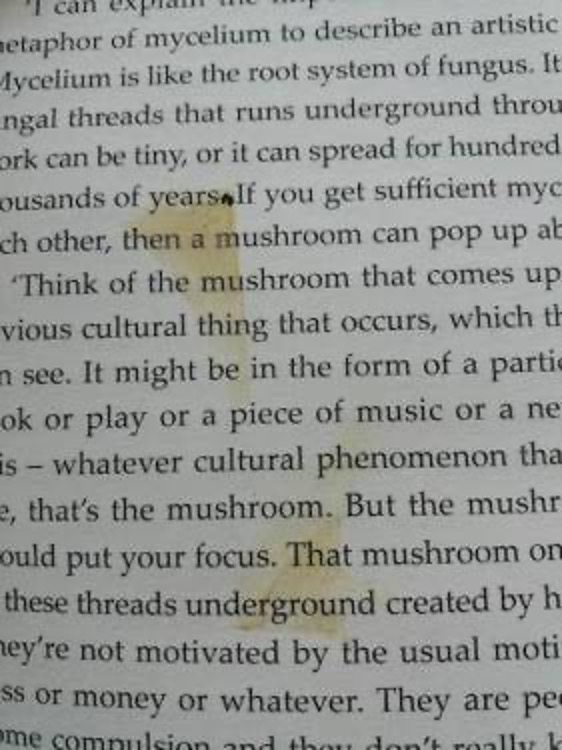This is a blog post that got lost in my drafts. I originally wrote it in 2021 after seeing Adam Curtis’s documentary series Can’t Get You Out of My Head, which had a bleak view of modern politics.
It’s hard to believe that The Future Starts Here came out in 2019 – that seems so long ago now. I actually unpacked my copy of the book this week, and am thinking of re-reading it. The optimistic message is still plausible and even more necessary now. As difficult as the last few years have been politically, economically and emotionally, there are strong underlying reasons for hope.
I read John Higgs’ book about the future, The Future Starts Here shortly after it came out. One afternoon, I took it with me for a walk on Brighton seafront. As I sat reading on a bench, a seagull shat on me. Birdshit splashed across the pages. John Higgs never saw that coming.

Despite that omission, it’s a good book, and it’s still relevant after Covid-19. That’s not bad for any pre-pandemic book about the future, but it’s even more remarkable for a positive one. Being pessimistic is easy, but this book rallies against the sort of learned helplessness we’re taught by the media. If we cannot see a positive future, then there is little point doing anything other than having mindless fun until it ends.
At one point John Higgs briefly refers to Francis Fukyama’s book The End of History, using that as an example of being blind to the future. Most references to The End of History are negative, and it is easy to mock Fukyama now. But doing that misses how plausible and welcome that idea was in 1992.
I grew up in the 80s, where life was overshadowed by the threat of nuclear war. Even children’s comics had serials set in irradiated hellscapes. It was a grim time. Then the Berlin Wall fell. Liberal democracy had won. Sure, life wasn’t perfect, but we could move beyond the battle of superpowers. It was a period when no two countries with McDonald’s restaurants had ever been at war. In last five years, I’ve felt assaulted by history. Instead of Fukyama’s dream of a safer and blander world delivered by democracy, politics has felt confusing and threatening. I miss the idea that history could end.
Which is an obscenely long preamble to my excitement about the new Adam Curtis show, which came out in February. It was trailed by an epic interview in the New Yorker. In the interview Curtis talks about the idea that elites across the world are trying to “manage the world without transforming it”. As Curtis says:
There isn’t a big story. And that’s true in China as much as it is here. Everyone’s just trying to manage the now and desperately hold it stable, almost like in a permanent present, and not step into the future. And I don’t think that will last very long. . . . Because if you’ve got a story about where you’re going, when catastrophes like 9/11 or covid or the banking crisis hit, they allow you to put them—even though they’re frightening—to put them into a sense of proportion. If you don’t have a story about where you’re going, they seem like terrifying random acts from another universe.
One of the points Higgs made in his book which resonated most was that we don’t have many positive visions of the future. Science fiction has become haunted by totalitarism, killer robots, even fake worlds, where media lies have become absolute. But there are reasons to hope. Talking about the pandemic, Curtis says:
If science can bring out a vaccine within seven months, you can change the world—you really can… my instinct tells me that people are fed up with that feeling of helplessness. They’re beginning to realize that it doesn’t just come from inside them—that maybe they are weak for a reason, and not because of themselves.
In many ways, Can’t Get You Out of My Head felt like a missed opportunity, Curtis’s equivalent of a Vegas set, playing the hits and a few crowd-pleasing new ones. There were some interesting ideas, such as Curtis’s response to Dominic Cummings (from a recent interview: “I had time for Cummings because compared to other politicians he actually had some ideas”) and the meaning of Brexit. And, you know, it would have been more interesting to watch a film about how to get out of the current situation rather than wallow in it. The show started and ended with that great quote by David Graeber:
The ultimate hidden truth of the world is that it is something we make and could just as easily make differently.
What type of future do we want?